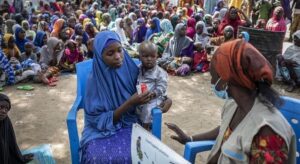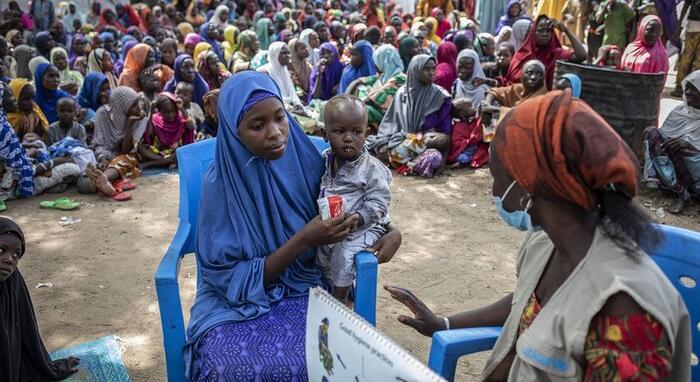
According to Save the Children, an ongoing wave of attacks by armed groups on farmers in Nigeria is hindering vital food supplies and posing a threat to further plunge the nation into a terrible famine crisis this year. Increased attacks on farmers are displacing people, disrupting markets, and causing people to lose their livelihoods in many sections of the nation.
According to the Nigerian Security Tracker, between January and June 2023, armed groups killed more than 128 farmers in Nigeria and abducted 37 more.
Only in Borno State in northern Nigeria did nonstate armed groups kill 19 farmers in June.
Bulama is a farmer in northeast Nigeria, so he is accustomed to instability, but this year has been challenging. Most of the farmers Bulama has worked with have been abducted or killed by armed persons.
Armed groups have attacked and abducted farmers who are our friends and brothers on several occasions while we will be working in the fields, Bulama added. Usually, the ransom demanded is an amount that no villager can afford.
“They killed and took our farm’s produce, leaving us defenseless and unable to transport anything home. The majority of us in our community go hungry and starve to death because the rebels deny us access to the farmlands and steal everything from us as we risk our lives on the fields.
Although farming puts his life in danger, Bulama explained that if he stops, his children will perish—a heartbreaking dilemma that is all too prevalent for farmers in the north.
The persistent instability, extended wars, and anticipated increases in food costs, according to a January UN assessment, could lead to more than 25 million people in Nigeria going without food this year, a 47% increase from the 17 million people who were already at risk of going hungry.
Additionally, it is anticipated that in 2023, acute malnutrition will affect an estimated two million children under the age of five in the northeastern Nigerian states of Borno, Adamawa, and Yobe, with roughly 700,000 of those children on the verge of death.
Extreme weather events, which are occurring more frequently and with more severity as a result of the climate catastrophe, are also expected to cause far more people to go hungry than was previously anticipated.
Bulama continued, “The lack of rain this year has made the hunger problem my family is currently experiencing worse. All of the crops we still have are dried and dead. Because most farmers are cutting down their dried crops in order to plant new ones, it has forced us to start over from scratch. We are starving and have nowhere to go. We are capable of going days without eating.”
In order to combat food shortages, stabilize price increases, and strengthen safety for farmers facing armed group violence, Nigeria recently announced a state of emergency on food insecurity.
“These violent attacks against farmers in Nigeria are exacerbating the already severe hunger crisis in the country, especially in the north where millions of children do not know where their next meal will come from,” said Famari Barro, the country director for Save the Children in Nigeria.
Armed organizations carrying out these brutal deeds not only impede food production but also put children in danger. “In order to reverse this tragic trend and safeguard the lives of the innocent, immediate action must prioritize the needs of children. If not, armed groups will carry out more horrifying assaults, raise food prices, and starve more families.”
Since 2014, Save the Children has been addressing the humanitarian crisis in the northeast of Nigeria, where it has operated since 2001. Save the Children offers families in Northeast Nigeria food, clean water, nutrition, and protection services, sexual and reproductive health care, and education.
Additionally, Save the Children offers technical assistance to the government in relation to policy alterations and reforms, particularly in crucial fields like social protection, health, and education.

Comments